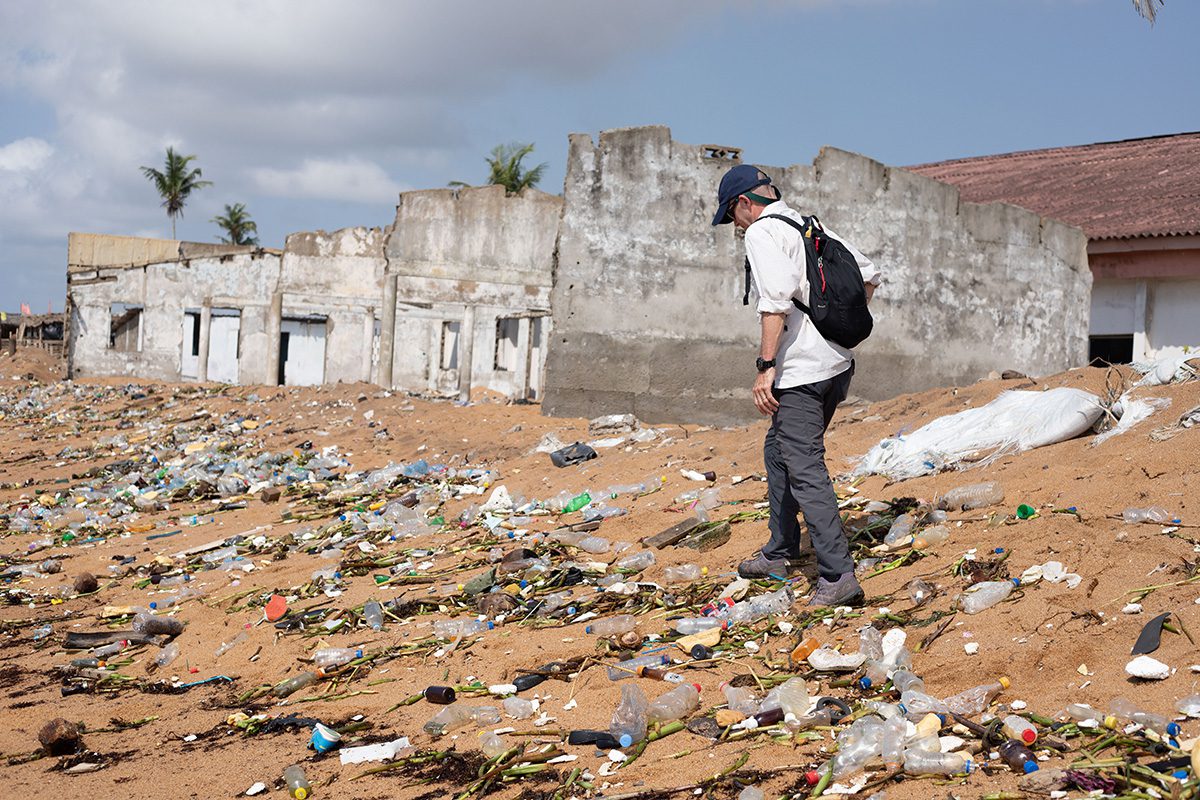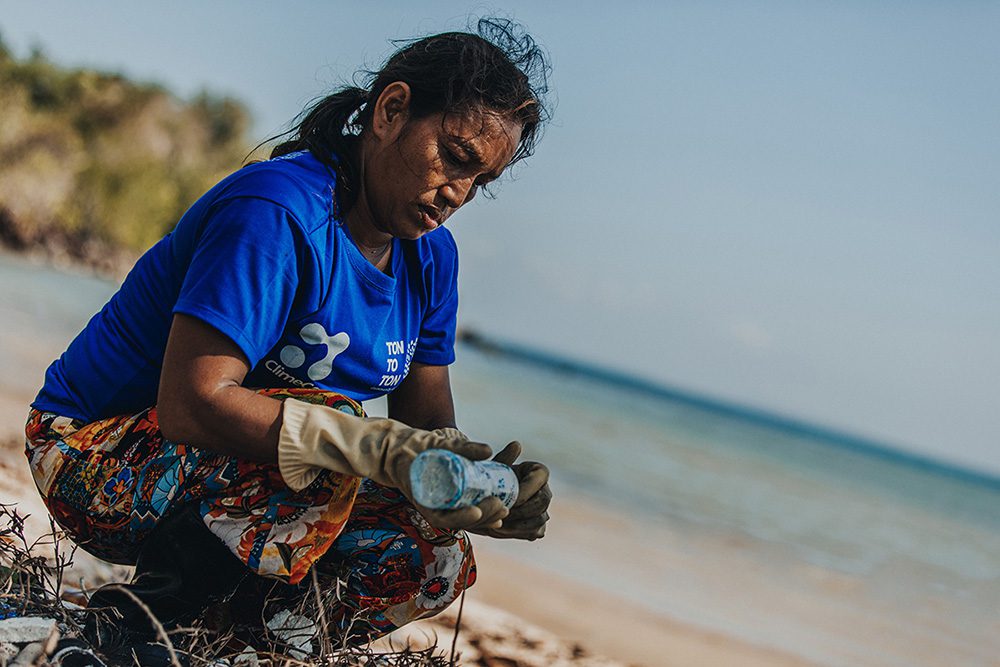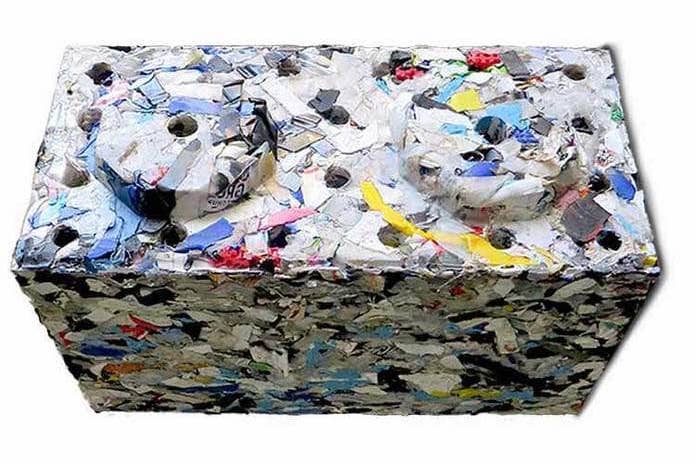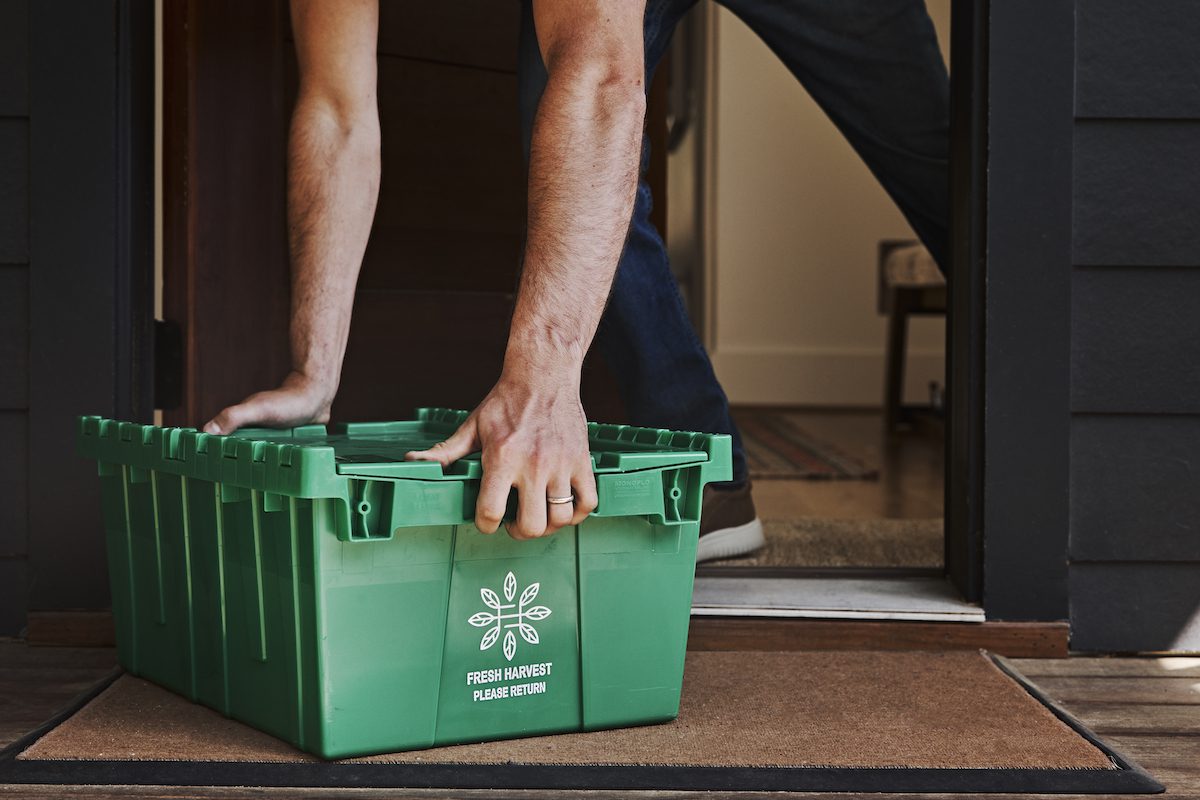Dr. Leticia Socal is an environmental activist, a wife, a mother of two, a chemist with a PhD, and a Fresh Harvest customer. Her career took a major turn after 15 years in the petro-chemical plastics industry toward environmental work when she and her family moved to Atlanta in 2019. I was recently able to catch Leticia over Zoom while she was working from Brazil. Check out our conversation below to learn what caused her career shift, her experience as a Fresh Harvest customer, and some helpful tidbits for anyone looking to lessen their environmental footprint!

Joe: Hi Leticia! Great to see you. Can you tell us more about yourself and your career before you came to Atlanta?
Leticia: Hi Joe and Fresh Harvest customers! My name is Leticia Socal. I come from a very small town in the deep south of Brazil. I left to see the world, got educated, got my PhD in Paris, got married, then moved to Philadelphia with my husband 10 years ago. I’m a chemist by training with a PhD in Materials Science, and I worked for 15 years in the plastics industry. We moved to Atlanta from Philadelphia 3 years ago for my husband Mathieu’s job and that’s when I made the shift to sustainability, just a few months before the pandemic.
Joe: Can you talk about that shift and what caused it?
Leticia: In my last years working for the petro-chemical company in Philly, I was feeling some discontent about their sustainability projects. And then I had my two girls and that was around the time I turned 40. You start getting a little older, have kids, and then you see something in your work and ask “What am I doing?” I started to really question what I wanted to leave as my legacy for my kids. Then when we got this opportunity to move, it was sort of a trigger for me to quit. I just knew something was changing inside me.

Joe: What are you doing now that your sustainability priorities have shifted?
Leticia: Recently, I joined a boutique sustainability firm called ClimeCo as a plastics expert and became their Senior Manager of Plastics & Recycling. Among other things, they are creating a plastics collection and repurposing program. What they do is work with organizations in places like Vietnam, Ivory Coast, and Cambodia to help them get organized around plastic waste collection and repurposing. Everything gets collected and will get transformed to something useful. We help them get investments so people on the ground can be paid fairly.

Joe: Can you talk about how plastic offset credits work?
Leticia: ClimeCo invests in and gets investment for long-term environmental projects, which generate plastic offset credits. In addition to working on their own plastic reduction practices, consumer goods companies that are aware they’re part of the problem can buy that credit. It’s a finance mechanism that helps these companies meet their sustainability goals. The whole idea is to create a long-term infrastructure in those countries, because it’s not just a beach clean up, it’s infrastructure creation. For example, in our Ivory Coast project, wages for the employees picking and repurposing plastic waste are now 10 times more than they were, plus added health insurance. Now they’re working with a company that’s making plastic bricks, not just picking up trash. So in the long term it’s creating an infrastructure that was not in place before.

Joe: That’s an amazing mission. What else are you working on that you’re passionate about?
Leticia: One of my other passions is to teach kids about recycling. Last April we collected 350 pounds of mixed plastic waste with my daughters’ school, working with CHARM and ByFusion, which turns plastic waste into bricks. The plastic goes into a mold and is formed into bricks that fit together like legos. To really change our behavior and make an impact, it’s going to take a generation. And that’s why I’m passionate about educating kids. But it’s amazing, because now the kids are educating the parents. Parents may not listen to me, but they will listen to their kids.

Joe: How’d you get started as a Fresh Harvest customer?
Leticia: When I moved to Atlanta and started my sustainability journey I started looking around my household and noticed all the wrong things that I was doing. I remembered a lot of friends of mine in Philly got CSA boxes, so I searched in Atlanta. When I saw you guys, I think what drew me the most was your reusable model: the empty baskets you collect every week, and that whatever packaging you send me I can send it back to you, from the foil to the ice packs. When I started learning a little more about how you operate in a local radius, I was like “Huh! Great!” Then I learned about your work with refugees in the community and the people you employ and I said, “I love those guys!” And our girls love Fresh Harvest too. They bring the empty basket to the door on Monday night and remind me every week that it’s Fresh Harvest day.

Joe: Fresh Harvest is far from perfect on environmental progress, but we are always trying to improve. You’ve played a part in that progress, right?
Leticia: I noticed some things with a biodegradable netting you had that didn’t seem right, so I sent a message and the customer service manager got back to me with the name of the supplier. I did my research and found that the supplier was not very good, so I let you guys know the issues I saw. Now I see that it’s being phased out and replaced with better compostable alternatives. I was also really glad when you guys did the CompostNow partnership. All the Fresh Harvest consumer has to do is put their compostable materials back in the empty basket and Fresh Harvest will send it to CompostNow. I really like that model because it’s truly circular.

Joe: What do you say to the Fresh Harvest customer who wants to do more for the environment but needs simple steps?
Leticia: I would say to start in your own house. You can find a lot of low hanging fruit just by looking inside your waste bin. If you see your waste has a lot of vegetable peels, just start composting them. It’s easy to compost anywhere, even in an apartment. Once you look at things this way, you start to like it so much because you see the results and it’s satisfying. Whatever you do, as you start to get excited about it, share it with others. Go to the community, send feedback to Fresh Harvest, get active. Empowerment happens when we start doing something and realize that everything counts, that every little step matters.

Helpful Resources:
- Learn more about Leticia and her work at her consumer education blog www.natu.org
- Watch this beautiful 6 minute video to see how ClimeCo’s work creates long term infrastructure and sustainable plastic repurposing
- Check out ByFusion’s plastic “lego bricks” video
- Discover the hard to recycle items CHARM accepts and make a recycling appointment here
